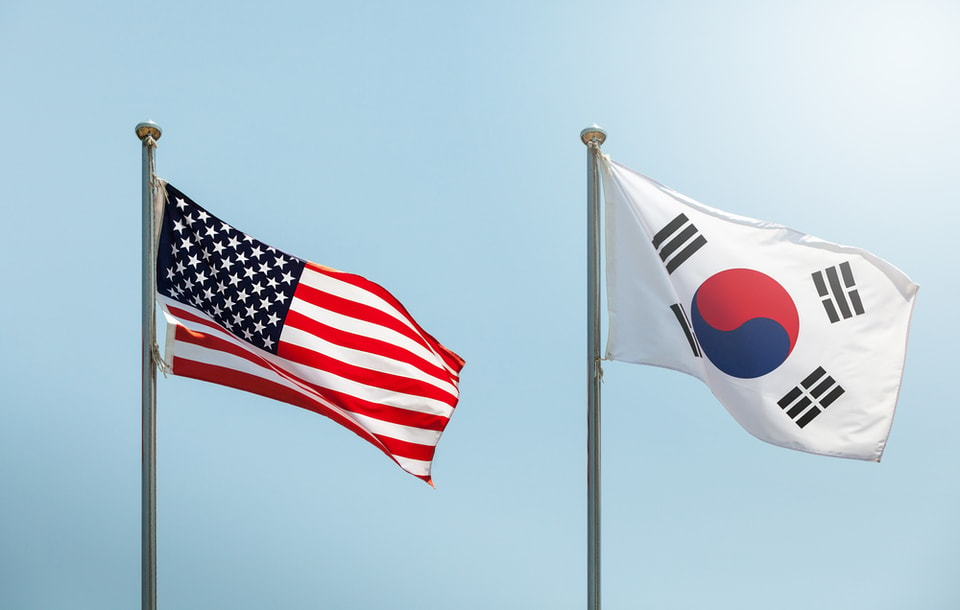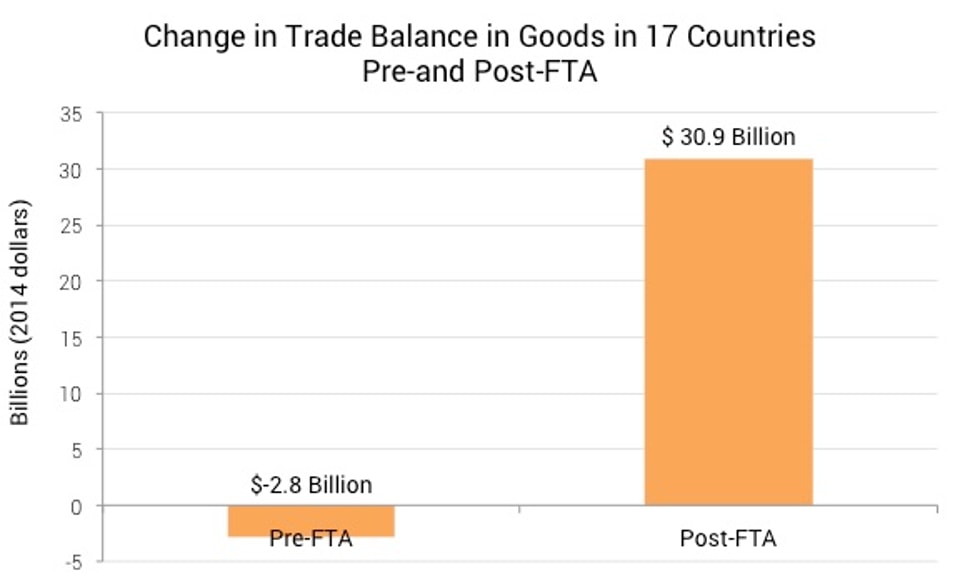Op-Ed Published March 17, 2015 · Updated March 17, 2015 · 4 minute read
What Trade Opponents Miss by Focusing on Korea
Jim Kessler & Jay Chittooran

On the eve of the third anniversary of the U.S.-Korea free trade agreement, opponents of new trade deals are crowing that this 3-year old has not delivered as promised. They point to a widening trade deficit in the area of goods as proof that trade deals are bad for blue-collar workers.
But where were these revelers two weeks ago when U.S. trade agreements with El Salvador and Honduras celebrated their 9th anniversaries on March 1? Between the two countries, the U.S. trade balance in the blue-collar goods sector improved by more than $3 billion. In fact, in both countries, chronic trade deficits in goods have become surpluses. Our agreement with the Dominican Republic celebrated eight years also on March 1, and our trade balance has improved by more than $2.5 billion in the goods sector. And while we’re on the subject, our trade agreement with Colombia turns three in May, and we do need to shop for present to celebrate that we’ve gone from a goods trade deficit of more than $9 billion in 2011 to a surplus of just shy of $2 billion in 2014.
The point is that if we are going to celebrate anniversaries of modern trade deals, let’s celebrate all of them. Since NAFTA, the United States has concluded trade deals with 17 countries. Korea (also known as KORUS) is one of them, and our trade balance in goods suffered with them because of an abrupt slowdown in their economy. But there are 16 other trade deals signed, sealed, and delivered since 2000, and as we’ve found in a recent study, there is only one possible conclusion that can be drawn from them: they've been a success for America’s blue-collar sector. In 13 of 17 free trade agreements, the U.S. balance of trade in goods improved. Further, it should be noted that with the white-collar sector of our economy, the United States already has a huge worldwide surplus in services trade, and these positive returns on recent trade deals omits this important sector of our economy.
How important have these deals been for the middle class, blue-collar worker? Including Korea, when all 17 countries are put together, our balance of trade in goods improved by an average of $30 billion per year in 2014 dollars. On a per country basis, our goods balance improved by nearly $2 billion per year. Goods exports from the United States increased by 52% on a yearly basis; goods imports into the U.S. increased by 26%.
These trade deals turned net deficits into surpluses. In 2014, the United States had a $31 billion aggregate surplus in the goods trade with these 17 countries. In the final full year before each trade deal was implemented, we ran a $3 billion goods deficit with these same countries, in 2014 dollars.

When you look solely at the balance of trade in goods, our 21st century trade deals together are delivering for the country and for the middle class. And that doesn’t even account for the massive increased in the amount of services we export, increased transparency and enforcement, stronger labor and environmental standards, and strengthened rule of law that are part of these modern trade deals, including the one with Korea.
Our trade deals have become better and stronger since the turn of the century, and it shows in the resulting balances in trade. Korea will likely turn positive as well as its economy improves. As we debate the coming trade agreement with the Asia-Pacific, known as the Trans-Pacific Partnership (TPP), we need to look at all of these modern trade agreements to determine what will work for America’s middle class—both on the factory floor and the office cubicle. If TPP delivers as much as our past 17 trade deals, the benefits to the middle class will be nothing short of spectacular given the size of these economies.
This piece was originally published March 15, 2015 in U.S. News and World Report under the headline, "Blue-Collar Workers Win in Modern Trade Deals."

